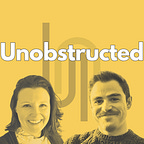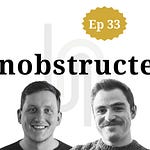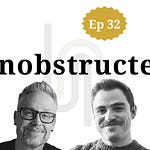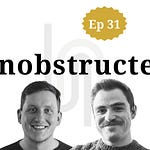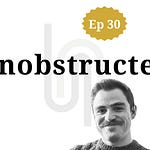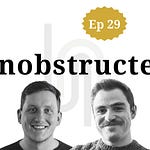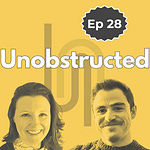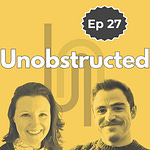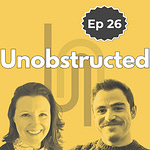You know when you’re talking to somebody and you can tell they think you’re full of shit… but they haven’t said it out loud?
That started happening to me a lot in my early twenties. It’s what I thought of when Rachael asked which fictional character I related to, because my answer was Bill Murray in the movie Groundhog Day.
We, collectively, seem to underestimate how long everything will take us to complete.
If you only ever try to fix what you’re bad at, you might get better over time… but when you focus on what you’re already good at, you’ll make a lot more progress now.
We’d been talking about time management and Rachael had shared her experience with trying to schedule her work week. Then we got into how I used to say yes to everything… “Sure, I’ll do that. Yes, I can take it. Of course! I’d love to help you with that.” But I’d skip right past determining how long each of those things would take me. Naturally, the amount of time debt I’d accrue would be more than I could hope to pay off.
The story I was telling myself for a long time was that people were buying the bullshit I was presenting to them. It wasn’t malicious, but still, that facade started to chip and I started to see reactions from people that screamed “you’re so full of shit.” But nobody would say it out loud.
People throw around the word “unmotivated” a lot but this is actually a case of when you care too much. These folks, like younger me, want to do it all but end up with no time to follow through on the things they’ve committed to.
The truth is that most of us burn out because we rack up time-debt we can’t pay.
The Unobstructed Podcast: Episode 24
Getting clear on your values leads to better time management and a more fulfilling life overall. In our latest episode of The Unobstructed Podcast, Rachael and I dive into the relationship between time management, productivity, and identity.
Removing what’s in the way creates more short-term growth than struggling to overcome it. And repeatable short-term growth creates long-term growth. Both are positive, just in different ways. In this case, doubling down on what you’re good at will get you a better return on your time invested than trying to improve on what you’re bad at.
What I’ve learned is that silence says a lot—often more than the words we actually speak.
As that chronically burnt out twenty-something, the way I’d been managing my insecurity was by trying to manufacture security with others. It played into an exhaustive effort to control my environment, creating a kind of faux-safety through predictability.
You’re almost borrowing other people’s security when you do this, rather than building up your own from doing things you feel good about. That realization made me question a lot about myself. I tried to look inward to evaluate how I’d been showing up in life… at work, with friends, and for myself.
What I found didn’t make me feel good. So I stopped trying to lead with the bullshit and I started trying to listen more, pay attention to other people, and quit trying so hard to fit in. Ironically, by focusing on those things and not as much on myself, I began doing things that made me feel better.
You will sink yourself if you don’t defend your time.
Looking back, I think I’d just tipped really far into overcompensating for my own insecurities… almost like waving at people, as if to say, “I’m normal! I promise, look at me succeeding as a normal person!”
Now, I just have to be brutally honest with myself at all times. If I know I want to do things I’m excited about… I still have to consider my time and any potential time debt. What if I don’t get to them this week? Or next month? Or ever?
I had to learn how to be okay with that, which means managing a growing list of things I actually wanted to do, but couldn’t get to. What a gift. That’s a really good problem to have. But good things can turn sour, too.
Knowing your values is the best way to prevent time debt from stacking up in the first place.
Resentment builds up when you don’t have enough time to give. Which is why being realistic about how I spend my time, and how long things will take, became extremely important to me. And, I’m certainly not perfect. I get this wrong a lot. But I keep learning as I go.
Overcommitting to things I didn’t value led to living a groundhog day of burn out cycles. Defending my schedule is what fixed it. Rachael and I chat more in depth about this in the episode above.
You can also listen on Spotify, Apple Podcasts, and Amazon Music.
onward.
P.S. If you’re new to my work, I think you’d also enjoy my blog. That’s where you’ll find everything I publish, including my daily email series.


